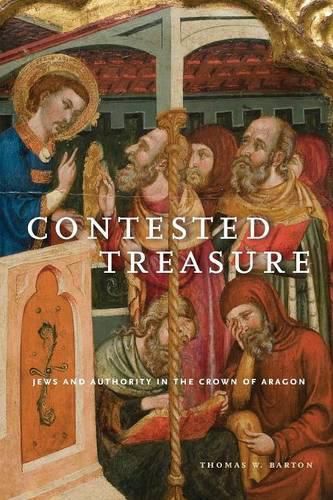Readings Newsletter
Become a Readings Member to make your shopping experience even easier.
Sign in or sign up for free!
You’re not far away from qualifying for FREE standard shipping within Australia
You’ve qualified for FREE standard shipping within Australia
The cart is loading…






In Contested Treasure, Thomas Barton examines how the Jews in the Crown of Aragon in the twelfth through fourteenth centuries negotiated the overlapping jurisdictions and power relations of local lords and the crown. The thirteenth century was a formative period for the growth of royal bureaucracy and the development of the crown’s legal claims regarding the Jews. While many Jews were under direct royal authority, significant numbers of Jews also lived under nonroyal and seigniorial jurisdiction. Barton argues that royal authority over the Jews (as well as Muslims) was far more modest and contingent on local factors than is usually recognized. Diverse case studies reveal that the monarchy’s Jewish policy emerged slowly, faced considerable resistance, and witnessed limited application within numerous localities under nonroyal control, thus allowing for more highly differentiated local modes of Jewish administration and coexistence. Contested Treasure refines and complicates our portrait of interfaith relations and the limits of royal authority in medieval Spain, and it presents a new approach to the study of ethnoreligious relations and administrative history in medieval European society.
$9.00 standard shipping within Australia
FREE standard shipping within Australia for orders over $100.00
Express & International shipping calculated at checkout
In Contested Treasure, Thomas Barton examines how the Jews in the Crown of Aragon in the twelfth through fourteenth centuries negotiated the overlapping jurisdictions and power relations of local lords and the crown. The thirteenth century was a formative period for the growth of royal bureaucracy and the development of the crown’s legal claims regarding the Jews. While many Jews were under direct royal authority, significant numbers of Jews also lived under nonroyal and seigniorial jurisdiction. Barton argues that royal authority over the Jews (as well as Muslims) was far more modest and contingent on local factors than is usually recognized. Diverse case studies reveal that the monarchy’s Jewish policy emerged slowly, faced considerable resistance, and witnessed limited application within numerous localities under nonroyal control, thus allowing for more highly differentiated local modes of Jewish administration and coexistence. Contested Treasure refines and complicates our portrait of interfaith relations and the limits of royal authority in medieval Spain, and it presents a new approach to the study of ethnoreligious relations and administrative history in medieval European society.